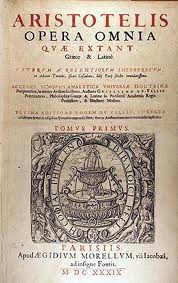
José Saramago, the Portuguese Nobel Prize-winner of Literature, uses Cain to attack God, in his latest book. Or better: it is with a certain idea of God - an idea created and cultivated by men - that he wants to settle accounts. Avowedly atheist, why would he bother to attack something - someone - that does not exist?
Saramago had already rewritten in his own way the New Testament, in The Gospel of Jesus Christ. In Cain (Companhia das Letras, 2009) he revisits the Old Testament, convinced that "the God of Christians is not that Jehovah".
He's not the first great Portuguese writer to do so. Fernando Pessoa, to oppose to the idea of a distant God, the father who judges and condemns, uses baby Jesus, a child god, our naughty little brother, neighbor and accomplice of human antics:
"He is the Eternal Child, the God that was missing.
He is the human, which is natural,
He is the divine who smiles and jokes.
And so, I know for sure,
He is the true Christ Child.
Pessoa's child Jesus fled from the Heavens because there, He explains, "everything is stupid as the Catholic Church" and "God is an old guy, stupid and sick."
In Cain there is no nice god to replace or to make up for the terrible God, creator and tormentor of mankind, who He seems to delight in making suffer.
Arbitrary and unfair, God rejects the offerings of Cain, while accepting those of his brother, Abel, for no apparent reason. Cain kills his brother, and becomes the counterpoint that Saramago chooses to denounce the "absurdities" that seem to populate the divine attitudes in the Old Testament.
With irony, humor and even some spicy moments, Cain - a kind of Don Quixote, mounted on a donkey - moves through the places and times of the old Holy Land witnessing, and sometimes intervening in known biblical episodes.
God commands Abraham to sacrifice his son, God takes vengeance on men who wanted to get to him building a tower, God turns fire on the sinful cities of Sodom and Gomorrah, exterminating sinners as well as innocents, God gets bored with his creation and sends the flood to destroy (almost) everything...
The stories are known, the ideas of Saramago about them too. What makes this book so interesting? The provocation, on the one hand: it forces us to think, even to be able to refute it, if we not agree with it. But especially the gripping literary qualities of the narrative, which holds us from beginning to end. Cain has something of the Iberian picaresque novel, a bit of Latin American magical realism, something of Brazilian Cordel literature (1), a seasoning of the on the road spirit, an aroma of classic heroic narrative and even a paradoxically Biblical accent. The mixture has been successful, I believe. And recommend.
An Eglish translation was published in 2011:Cain, By José Saramago, trans. Margaret Jull Costa
Harvill Secker, £12.99, 150pp. (£11.69 from the Independent Bookshop: 08430 600 030)
(1) https://publish.illinois.edu/litlanglibrary/2011/07/25/brazilian-cordel-literature/


